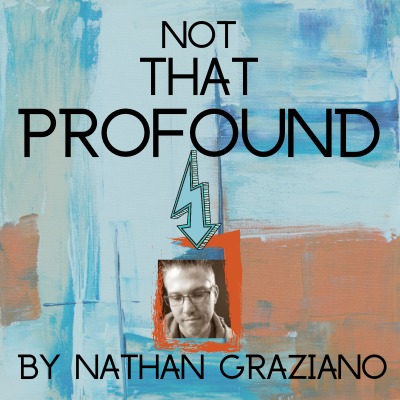
 I would venture to guess that most people are unaware that April is National Poetry Month. I would also venture to guess that most people—particularly in the United States—don’t care.
I would venture to guess that most people are unaware that April is National Poetry Month. I would also venture to guess that most people—particularly in the United States—don’t care.
For the past few decades, cynics and critics have made the claim that poetry is dead. For me, this is a moot argument based on an enormous generalization that only results in a laundry pile of clarifying questions.
What is poetry? How does one define a poem? Are songs considered poetry? What about spoken word?
And if a single person is still practicing the art form, can it truly be doornail-dead?
Webster’s Dictionary defines a poet as “one who writes poetry,” and after publishing four books of poems with a fifth collection slated for later this year[1], I suppose I fit the definition[2]. And as far as I know, I’m not dead.
Maybe a better question might be to ask if poetry on the printed page is still relevant.
And despite the fact that poetry remains a rare art form where its practitioners outnumber the audience, I’m going to try to make the case that poetry is not only relevant, but it’s the most important thing in the world.
I began writing poetry in high school for the same reason men do anything: I thought it would get me laid. I was woefully average as both an athlete and a guitarist but, for some reason, I was decent at breaking lines and placing words in front of each other. So I went with it.
My vainglorious poetic motivations continued into my 30s after I had some modest success with one of my poetry collections and figured it was only a matter of time until the world would notice me and I would enjoy celebrity status.
Obviously, it never happened.
However, long after I gave up on the accolades, I continue to read and write poetry, and my reasoning is simple: Poetry reminds me that I’m a human being with human feelings, and I’m not alone in feeling them.
Some of you may rightfully be calling me out for cribbing e.e. cummings’ “A Poet’s Advice to Students,” but his definition of a poet always struck me as spot-on. cummings wrote, “A poet is somebody who feels, and who expresses his feeling through words. This may sound easy. It isn’t.”
Reading good poetry is unlike reading anything else. A good poem cuts the vein. It allows us to understand what someone else is feeling—which is very different from understanding what someone else is thinking or saying. There is an intimacy with poetry that I can’t find anywhere else, and while it doesn’t always uplift me to read a poem, it forces me to feel something and connect with the world.
From W.B. Yeats, I learned that “The best lack all conviction, while the worst/Are full of passionate intensity.” T.S. Eliot forced me to ask myself: “Do I dare disturb the universe?” The contemporary poet Joel Brower showed me that “the brittle unbearable rests in [my] palm” while Franz Wright reminded me that “the fact is [I’m] a shocking wreck.”
Poetry informs our worldviews, feeds our souls and nurtures our minds in ways that make it—in my opinion—the most important thing in the world. When looking around at the spiritual cesspool our society is wading through, a doctor could reasonably prescribe poetry as a salve to soothe our damaged souls[3]
So Happy National Poetry Month. Now do your soul a favor and either read or write a poem. Or both.
_________
[1] Cue the shameless plug music.
[2] I have always detested the label “poet.” I find it pretentious when a person self-applies the term.
[3] Poetry also teaches us to avoid mixed metaphors.







